Shinzo Abe would go on to give his all to Japan a decade later. India awoke to horror on 08 July 2022 as news of former PM Abe being shot at twice during a stump speech in Nara hit the headlines. The news was unbelievable and within some hours the worst would be confirmed. For India, it was a very personal loss. Shinzo Abe was one of India’s greatest friends and among the most popular world leaders in India. His enthusiasm, respect and support for India were clear and palpable to all Indians, and distinct from the news-cycle diplomacy that has characterized other current leaders. His grace and passion were seen in his interactions ranging from Indian think tanks, businesses, and corporates to the Indian government. The relationship between PM Modi and PM Abe is now the stuff of legends. Though they had met prior to 2014, but since PM Modi assumed office in India, officials from both India and Japan have been perplexed by the mystical bond between the two, some deeming it to be a spiritual one.
India will always owe to PM Abe his enunciating a larger role for India in international affairs through the Indo-Pacific and the Quad, way before India shed her long-standing strategic inertia. The Indo-Pacific today not only defines regional security but has become a vital component of India’s bilateral relations with Japan, United States, and Australia.
Nobody in 2007 could anticipate how PM Abe’s speech "Confluence of the Two Seas" at the Indian Parliament would unleash a strategic tsunami in the decade ahead.
2007 was also an unacknowledged crossroads for Japan in discarding decades of strategic complacency to confront new realities after North Korea conducted its first nuclear test in October 2006. 2007 saw the upgradation of Japan’s Defense Agency to a full ministry for the first time since the end of World War II (nearly 53 years later). Fate would pick Mr Abe as its chosen medium to plug Japan’s gaping holes in its ability to secure itself by its own efforts. His return to the Prime Minister’s office in December 2012 and his unbroken tenure until his resignation in August 2020 (on health grounds) would see many steps towards securitization of Japan. Under Mr Abe, the first National Security Strategy was outlined that emphasized a ‘Proactive Contribution to Peace’ on Japan’s part and even broke the sacrosanct one percent ceiling of GDP on defense spending. Abe further introduced the most extensive legislation in Japan’s security policy – National Security Legislation - which allowed the Self Defense Forces to operate overseas for collective self-defence. He also lifted the total ban on arms exports and passed the State Secrets Law that had been abolished under the Allied Occupation period. As he took on the burden to legalize the status of Japan’s armed forces constitutionally, Abe became the emblem of the debate on the revision of Article 9 of the Japanese Constitution.
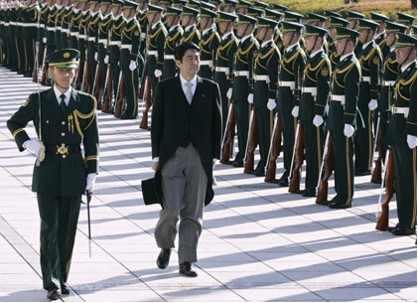
PM Abe reviews troops during a ceremony marking the Defense Agency being upgraded to a ministry, at Defense Ministry in Tokyo on January 9, 2007.
Mr Abe would supplement his security paradigm with a concurrent expansion of Japanese diplomacy. India would be one of his favorite partners. Beginning with the upgradation into the Special Strategic and Global Partnership in 2014, there was an unprecedented upward trajectory in India-Japan ties under his stewardship. In 2015, the joint statement between the two countries for the first time outlined working together in the Indo-Pacific. The same year Japan joined the Malabar Exercises as a permanent member. 2015 would also see PM Abe participate with PM Modi in one of the oldest Hindu traditions, performing the Ganga Aarti in Varanasi. It was an extraordinary moment of samsara, the continuous flow of life, reverberating India and Japan’s cultural similarity on imbuing rivers with divinity. Following 2016 saw the completion of the strenuous negotiations on the landmark India-Japan Civil Nuclear Agreement with PM Abe’s blessings. During the summit visit, a journey on Japan’s Shinkansen to Kobe the same year would lead to historic groundbreaking for India’s first High Speed Rail the next year. The Act East Forum established in 2017 led Japan to become a prime partner for India’s development in its Northeast Region. 2018 marked a culmination point in defence cooperation as joint exercises were held between all three services. In 2019, Japan became the second country after the US to have a 2+2 ministerial dialogue instituted with India. Though Mr Abe would step down in 2020, in 2022 he would take over as Chairperson for the Japan-India Association, a position he held until his untimely death.
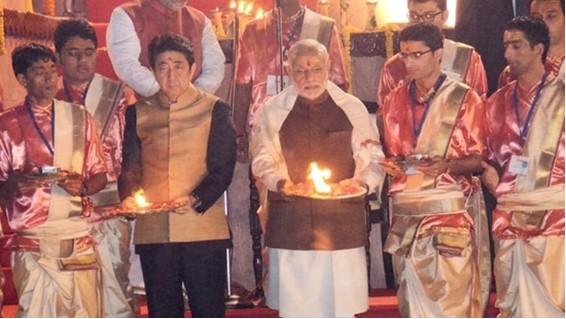
The visuals at Dashashwamedh Ghat won Indian hearts for all times ahead.
For the Vivekananda International Foundation right from its early years, Mr Shinzo Abe was an esteemed elder whose association tremendously enriched the organization. After two meetings with Japan Institute of National Fundamentals (JINF) in New Delhi in 2010 and 2011, when a four member delegation led by the then VIF Director, Mr Ajit Doval, visited Japan in June 2012, they had the fortune of interacting with Mr Abe, a patron for the JINF. Mr Abe spent a considerable amount of time with the JINF and VIF teams in Tokyo and enlightened them with his valuable inputs on what would later become a Joint Study on Framework for Indo-Japanese Strategic Partnership and Cooperation. The study would be launched a year later in June 2013 and remains one of the most comprehensive papers on potential of India-Japan relations till date. The VIF was also privileged to become a platform for PM Modi and PM Abe’s vision for "Samvad"- Global Hindu-Buddhist Initiative on Conflict Avoidance and Environment Consciousness. “Samvad” meaning dialogue borrows from eastern tradition of open debate, managing diversity through discussion and discourse. It underscores that peace between nations cannot be maintained without peace between religions and encourages avoiding conflicts, moving towards environmental consciousness and a concept of free and frank dialogue.
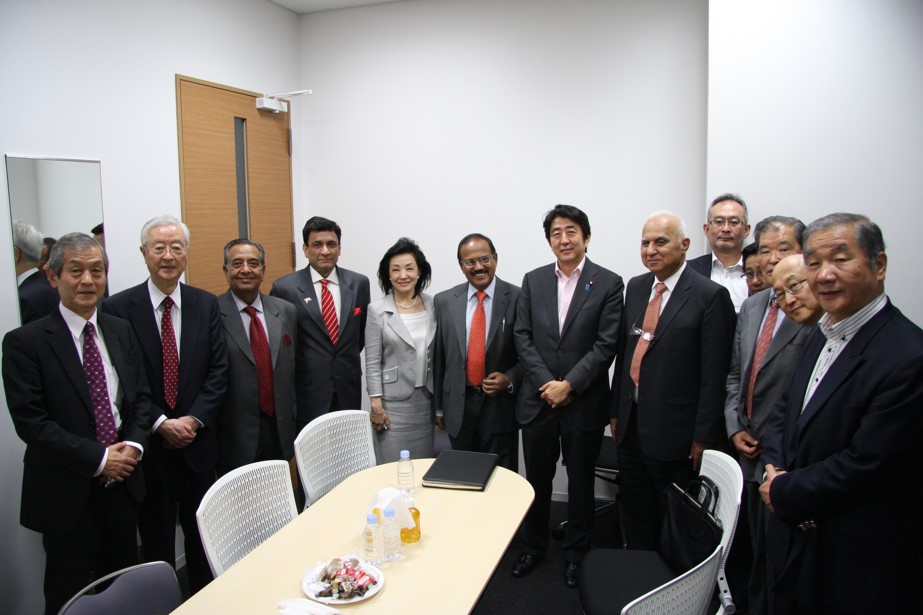
VIF and JINF delegates in Tokyo with Mr Shinzo Abe, Japanese Prime Minister & Patron, JINF (4th June 2012)
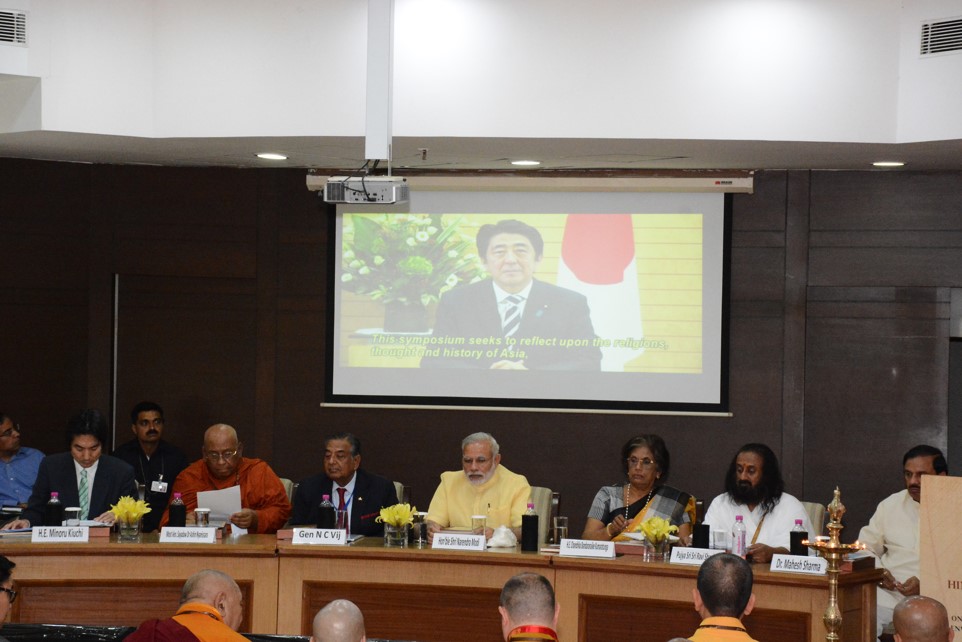
PM Modi listening to PM Abe’s recorded address during the first edition of Samvad held on the VIF premises in 2015.
The VIF community of stalwarts very fondly remembers the towering stature of Mr Shinzo Abe. Former Director of the VIF, General NC Vij (retd) reminisced about interacting with PM Shinzo Abe during the second edition of the Samvad held in Tokyo in 2016 and noted how he was immensely impressed by the leadership traits, warm hospitality and extraordinary friendly courtesy exhibited by Mr Abe. Gen Vij particularly remembered how Mr Abe during his hosted dinner, listened to every participant on the table on their takeaways and suggestions for improvement for the dialogue for next time. Dr. Arvind Gupta, current Director of the VIF who was part of the VIF delegation for the 2018 Samvad edition recollected Abe’s staunch support for Asian values that at their core promote social harmony. Mr S Gurumurthy, Chairman VIF paid homage to Late Shinzo Abe in a series of tweets on July 08. He mentioned a memorable conversation, where PM Abe explained to a small group visiting him that how the Prime Minister’s house had not been renovated as this was where they had signed surrender to the US and thus kept it untouched as a constant reminder for Japan’s leaders.
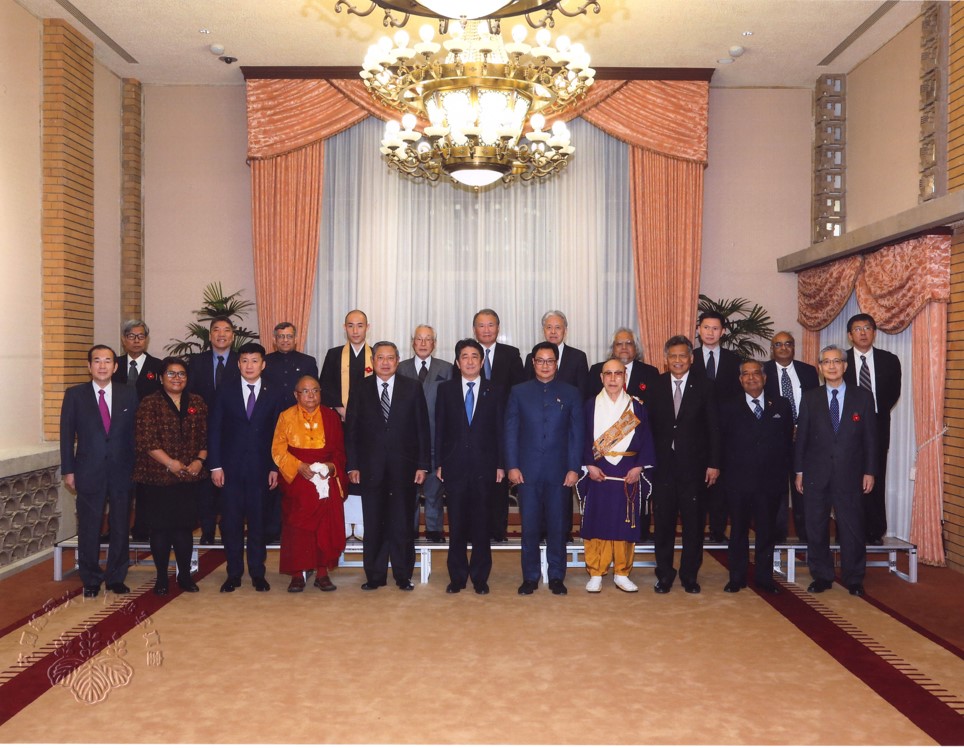
2016 Samvad Edition in Tokyo
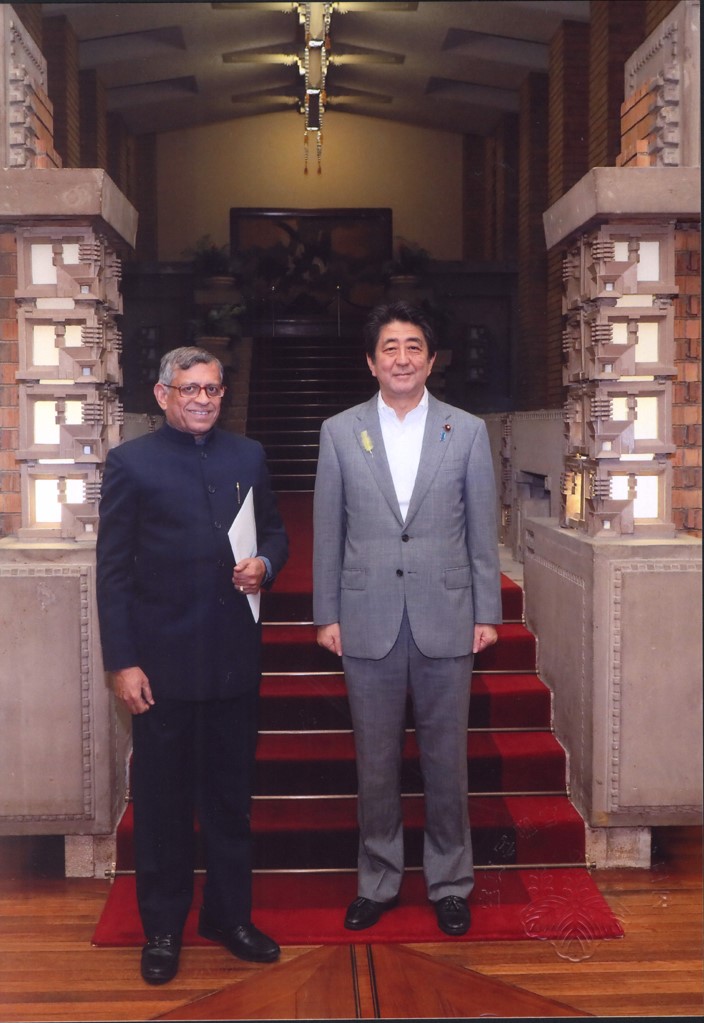
VIF Chairman, Mr S Gurumurthy with PM Shinzo Abe in 2018. Mr Gurumurthy led the VIF delegation for the Samvad edition in Tokyo that year.
For India, its relationship with Japan in the last two decades was ensconced within the persona of Shinzo Abe. That premise will now hold within the inimitable legacy left by him. Our deepest condolences to Japan and the family of the departed soul. Om Shanti.



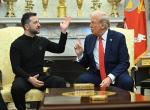






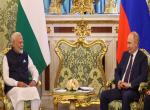
Post new comment